Kosovo's Brit peacekeepers could inform Ukraine plan
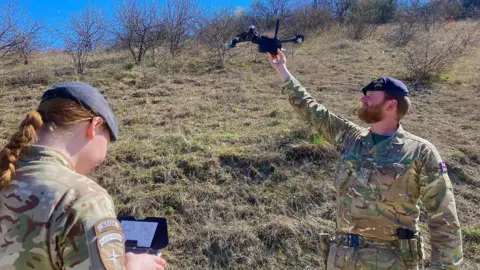 BBC
BBCIt is more than a quarter of a century since the end of the Kosovo conflict and during that time, the British Army has played a vital role in Nato peacekeeping operations.
As a reporter I got a rare opportunity to travel there to find out what the job involves.
After Prime Minister Sir Keir Starmer said he was "ready and willing" to put UK troops on the ground in Ukraine as part of a possible peace deal in future, the armed forces' experiences in Kosovo could prove valuable.
I stayed in Camp Novo Selo alongside soldiers from the Royal Lancers regiment who are just coming towards the end of their six-month tour of duty there.
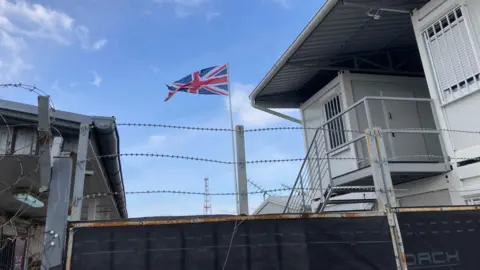
The political background to the Balkan region is complex.
In 1999 Nato carried out aerial bombardment of targets in neighbouring Serbia as part of efforts to bring the conflict with Kosovo to an end.
Following a peace agreement, Serbian forces withdrew from Kosovo.
Peacekeeping operations have continued since then, but violence has flared over the years and tensions still exist as Serbia does not recognise the Kosovo declaration of independence made in 2008.
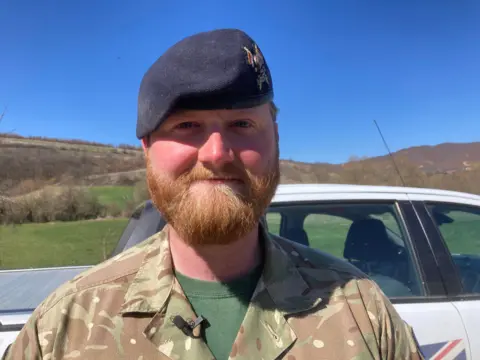
Cpl James Lowe is serving with the Royal Lancers in Kosovo.
The 31-year-old, from Blidworth in Nottinghamshire, is a drone pilot and uses the technology for reconnaissance in the Kosovan countryside, not far from Serbia.
British troops notify the Serbian authorities when they are due to fly drones and vice-versa, to avoid any misunderstandings.
Cpl Lowe said: "Every opportunity we get to train on a new skill, be it drones or armour, working alongside our partner nations in the alliance, that's just going to make us a more lethal Army."
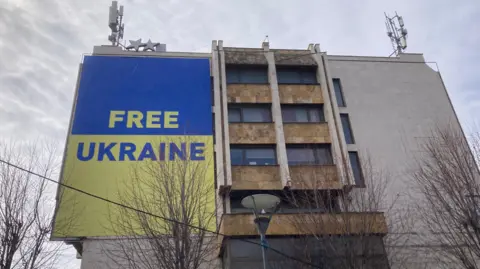
The majority of the population are Kosovo Albanians and they tend to support independence and the presence of the British Army.
"People at home don't always see the effect of British military policy overseas," said Cpl Lowe. "We are still really appreciated for it.
"We've gone places and they love seeing British and American soldiers. You've seen the streets that are named after Tony Blair.
"This is one of those places in the world you can come to and see we did something good and it is having a lasting impact for the people here."
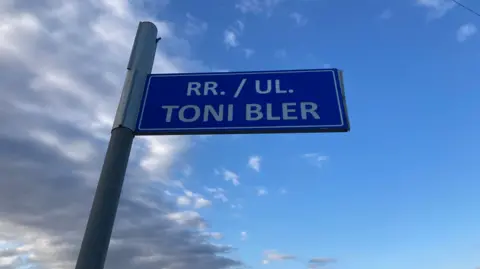
Outside of his work in the army, Cpl Lowe is a big fan of the Nottingham Panthers ice hockey team.
"I got to go to one of the games when I was back, just after Christmas and I've been able to keep up online," he said.
His other passions include table-top war gaming with characters from the Nottingham-based company Warhammer.
"You get to speak to people from all over the world," he said.
"It's really cool, really selling the county, because we're everywhere now, so it's good to share the cool bits and have friends from all over the world want to come and visit you."
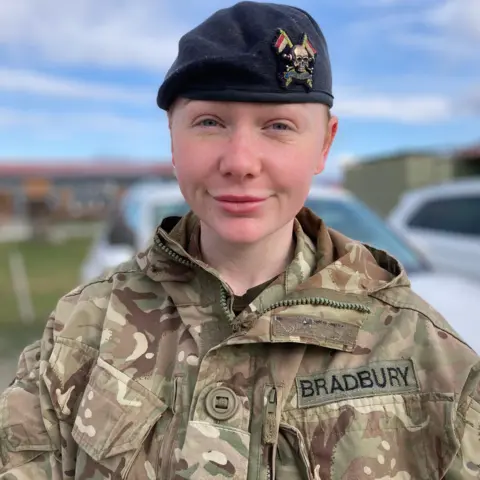
Kosovo is a country where tensions can rise and there is always potential for incidents to happen.
That means every time the soldiers leave camp, they do so with loaded weapons as a precaution.
One of the main tasks undertaken by the British unit is giving reassurance to the public out on the streets of the capital Pristina and other towns and cities around Kosovo.
L/Cpl Abbie Bradbury, from Mansfield in Nottinghamshire, said: "We go out and we speak to people, we see how they're doing, how they're feeling, if there's any advice so that we can help them day-to-day."
Being on operations in Kosovo is very different from training back in the UK, the 21-year-old said.
"I think something as abnormal as actually going out with a live weapon on the streets is something you have to get used to, but once you've done it a few times it just becomes second nature," she said.
L/Cpl Bradbury is encouraging more women to consider a role with the military.
She said: "It's great, especially within the armoured corps and the infantry, seeing more and more women enter and stay as well, it's really positive news."
L/Cpl Bradbury says she always wanted to join the Army.
"I signed up at 15 and nine months [as a junior soldier] - it's all I've wanted to do," she said.
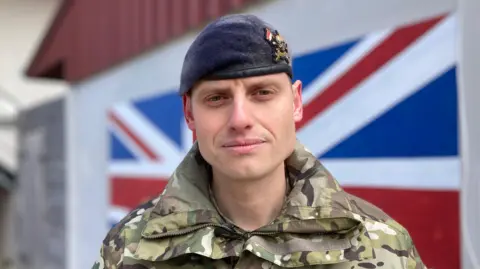
While the British soldiers carry out many different tasks all around Kosovo, they make up less than 1% of the total number of Nato and allied personnel in the country.
There are currently 44 British soldiers out of a total Kosovo Force (KFOR) of 4,686.
The officer commanding the British Task Unit, Maj Charlie Mackaness said: "We are here to provide a safe and secure environment and as a result the interactions have been really positive with the local population."
Maj Mackaness agrees the experience gained by British forces in Kosovo could be relevant to any future peacekeeping operations in Ukraine should such an arrangement be reached.
He said: "Yes, I think that we as a regiment have been involved in multiple peacekeeping operations over the last decade, whether that's been in Cyprus or in Kosovo, so I think that has certainly given us really important experience of the peacekeeping role."
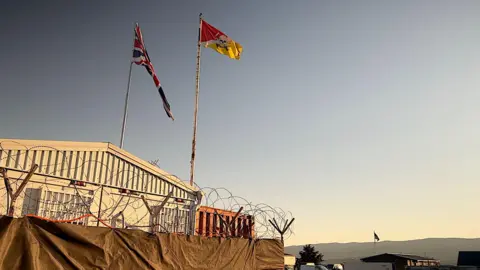
Follow BBC Nottingham on Facebook, on X, or on Instagram. Send your story ideas to [email protected] or via WhatsApp on 0808 100 2210.
